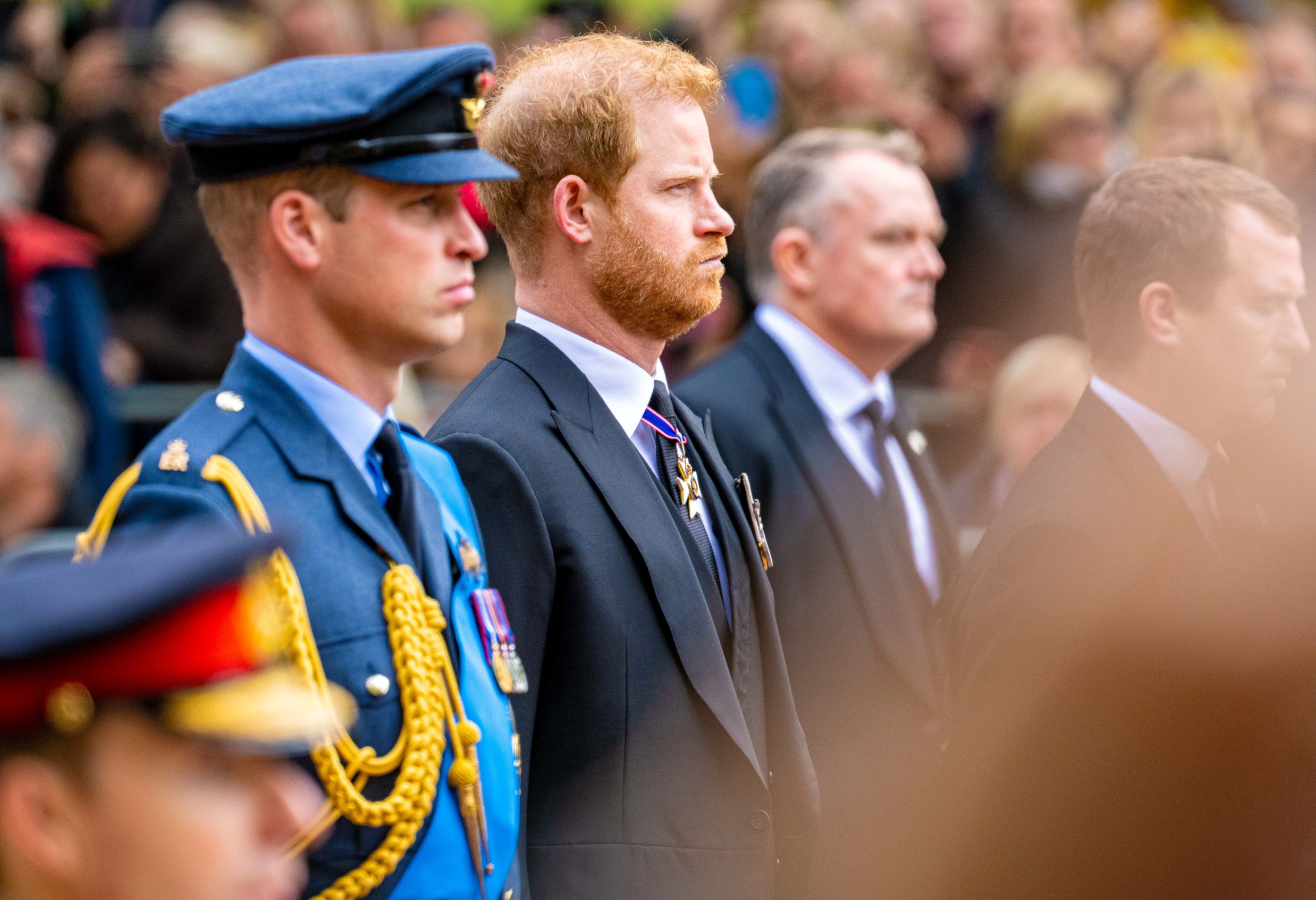The Shot
Mournography

Stop all the clocks, cut off the telephone,
Prevent the dog from barking with a juicy bone,
Silence the pianos and with muffled drum
Bring out the coffin, let the mourners come.
– Funeral Blues, W H Auden
When Prince Albert died in his sterbezimmer at Windsor Castle in 1861, his beloved wife Queen Victoria didn’t quite stop all the dogs from barking with a juicy bone, but she did have his clothes, fresh towels and a jug of water laid out in his room every evening by the servants for many years after his death. So overcome with grief at Albert’s demise was Victoria, she wore mourning black until her death in 1901.
If 40 years seems like a long time to be in mourning for somebody, imagine living in Australia in 2022 where the official mourning period for Queen Elizabeth II seems to have been almost as long, lacking only the elaborate black crinoline dresses – and don’t think for a moment the monarchy obsessed ABC news department didn’t half-consider them.
In the 18th century in Britain no fewer than 4 monarchs died, requiring 12 months of mourning for each one, a period allegedly causing financial problems for the cloth weavers who had to endlessly offload all their colourful stock and reinvest in black crepe. The good citizens of Britain and all her colonial realms were not only expected to wear black for 12 months after the death of the monarch (which monarch didn’t seem to matter, as they kept shuffling off far too regularly) but also court functions were suspended, churches had their bells muffled, theatres closed and letters were sealed with black wax. Mourning was so pervasive that notices were placed in newspapers instructing the citizens across the classes on how they should behave. Mourning correctly in Anglocentric circles, it seems, has a very long tradition.
From the moment the death of Elizabeth Alexandra Mary Windsor, Queen Elizabeth the Second, by the Grace of God of the United Kingdom of Great Britain and Northern Ireland and of Her other Realms and Territories Queen, Head of the Commonwealth, Defender of the Faith was announced on September 8 – September 9 for the plebs in the antipodes – the great art of mourning correctly began.
Our televisions and consumable media were hijacked overnight by the devastating/exciting/moderately interesting (depending on your persuasion) news that the Queen had died and from then on, we were going to be subjected to this griefathon as endless newstainment – whether we liked it or not. It didn’t matter that other news was happening concurrently in other parts of the world, that thousands were still stranded in Pakistan’s floods or the Ukrainians had turned Russians back on themselves in their war, or even in news closer to home, that 62 Australians had died that day from covid.
No, the Queen had died, forget everybody else, and as such you were going to act accordingly, mourn accordingly and be damn well interested – or publicly shamed if you didn’t.
If you’ve been paying attention, you may have noticed not that much from 18th century Britain, apart from the black wax, has changed. The paternalism and compulsory mournography has been breathtaking. Hungry for content and aware that this moment is a boon for advertisers and click-baiters, mass media have force-fed Australians a diet of 100% pre-packaged grief for endless days. It’s not so much about the death of a monarch as the excitement of producers and editors to finally shove all those long-hoarded documentaries and Queen’s death plans down our throats.
One journalist, who must have missed covid, the landing on the moon and the Vietnam War, berated us for not recognising this as the most noteworthy story for many decades, (it isn’t) and the ABC has had defenders on every corner lecturing us on everything from how many people it takes to film an outdoor queue in Westminster (quite a few, you fool who didn’t know) and why 30 odd ABC staff need to be flown especially to London, even though nobody has yet managed to give a clear answer.
We’ve been lectured on everything from how to be respectful and how to pay our respects as if a price to be paid is owed, to this not being the time to speak of a republic, or speak of why federal parliament was suspended (ask John Howard apparently because that’s how old the plans are) or not being the time for anything really except what a small group of powerful people have told us is correct mourning behaviour. 18th century Britain would be proud.
What’s galling about this attitude from established sources of power like mass media and politicians, is this insistence that we must mourn, that we must be interested in the mourning based on their ideas of what they consider appropriate. No research, no data, no analysis, just people in power telling you to be sad or moderately sad, depending on your disposition and if you can’t be sad, shut up.
When somebody close to you dies, especially if you have a strong degree of feeling towards them, your emotions and your reactions belong to you. They’re unique. They’re deeply personal. Similarly, when somebody you don’t know at all dies, you might express sympathy to your friend or neighbour, but you predominantly get on with your life. Death is part of life and the world stops for no one.
The day my father died was a pretty ordinary day – apart from the dying. After the initial shock, I called friends, walked the dogs and generally puddled through the next few days and weeks as best I could. I didn’t expect to find life had come to a standstill outside my front door, nor did I expect the newsreaders to don black jackets. My grief was personal, intimate and unique to me.
When Kurt Cobain died by suicide in 1994, MTV ran a special on his life on repeat for 24 hours. Two days after his death, 7,000 mourners spontaneously gathered at a park in Seattle’s centre for a public vigil. His widow Courtney Love read aloud portions of Cobain’s suicide note and later, she publicly mourned with fans standing grieving outside Cobain’s home with candles and guitars.
The public maintained spontaneous mourning vigils again upon the death of Diana, Princess of Wales. The overflowing reaction to the death of Diana in 1997 seemed to have taken the British establishment and the media by surprise. Flowered shrines sprung up overnight outside palaces and embassies, and people took to the streets to publicly engage in their own form of recreational grieving. The mournography in this instance was authentic and organic. But even the glossy magazines who helped contribute to Diana’s demise still found a way to commodify her death.
In the case of Cobain, or Diana, or Elizabeth the Queen, the main argument is that we the public did not know any of them. None of us really knew the Queen, we only knew the vision sold to us, unless you count the endless mourn stars, sorry, royal experts, now pontificating on everything QE II related as if they’d all been best friends for decades. If we did not know these people, why do we mourn them?
Humans need heroes. We mortal souls have always had an innate need to worship a deity of some kind and it is impossible to define how each person identifies with the symbol they look up to – Kurt Cobain, Diana Princes of Wales, the Queen, they were symbols of something to somebody.
But was the Queen a symbol or a clever marketing exercise? Is the British monarchy and all its colourful ceremonies there to protect the wealth of a few, while all the while keeping the chattering classes and their dull grey lives bright with the pomp and pageantry?
Is it a moment of respectful pilgrimage to queue up to look at the Queen’s coffin, or an unknowing obedience to the manipulations people have been fed their whole lives? There is no point raising that with those who mourn her because the people who mourn her the world over looked at her as their Queen, their person. She wasn’t a symbol, or a hero. She belonged to them. Unlike the pre-packaged mournography presented to us by mass media, the people’s grief is personal.
Who are we to say somebody should not weep for the Queen, their Queen? With her death, some mourn for the loss of something else – innocence, a sense of familiarity, a time they know they will never have again.
It is not the grief itself that’s the real problem, it’s the practice of being gaslit into caring, it’s the commodifying and regulation of that grief by the powerful that diminishes us all.






